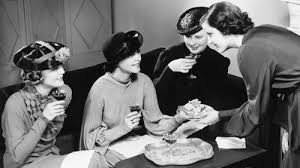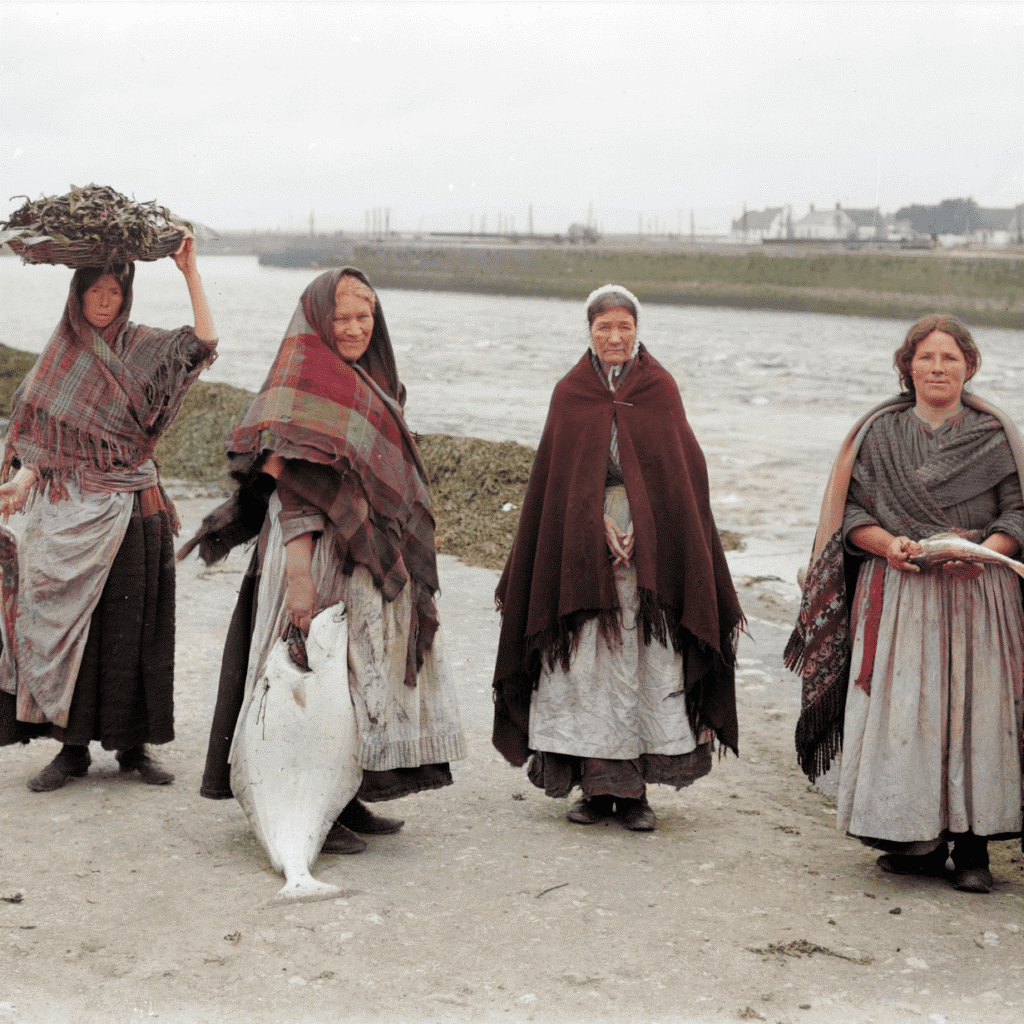Nollaig na mBan Traditions in Galway
Galway
Nollaig na mBan Traditions in Galway
Posted 24 December 2024
Nollaig na mBan (pronounced null-ig na mon, meaning "Women's Christmas" in Irish) is a beloved Irish tradition celebrated on January 6th, also known as the Feast of the Epiphany. This day marks the official end of the Christmas season in Ireland, but its cultural significance goes far beyond that—it’s a day dedicated to honouring women.
What is Nollaig na mBan?
Traditionally, Nollaig na mBan was a day when Irish women, who often endured the most of holiday preparations, were celebrated for their hard work. After weeks of cooking, cleaning, and organizing festive gatherings, women were encouraged to put their feet up and take a well-deserved break. Men would take over the household duties, and women would gather with friends, sisters, or neighbours to enjoy tea, cakes, and good company.
The tradition dates to a time when gender roles were more rigid, and this one day symbolized an acknowledgment of women's contributions to family and community life.
Nollaig na mBan (Women's Christmas) has its roots in Ireland’s rural, predominantly Catholic past. Celebrated on January 6th, the Feast of the Epiphany, this day traditionally marked the visit of the Three Wise Men to the infant Jesus, closing the Christmas season. While the day has religious significance, the social custom of Nollaig na mBan evolved as a uniquely Irish tradition with a focus on women.
In rural Ireland, where gender roles were sharply divided, women often took on the lion’s share of the domestic labour, especially during the demanding Christmas season. Cooking elaborate meals, cleaning, hosting guests, and ensuring the family was well taken care of were all seen as the woman’s responsibility. Nollaig na mBan became a day of recognition and respite—a chance for women to relax, socialize, and celebrate their hard work while men oversaw the household tasks for the day.
The tradition was deeply intertwined with community and family life. Women would visit each other's homes, share leftover Christmas treats like barmbrack or fruitcake, and enjoy tea or a small tipple. It was a time for laughter, stories, and solidarity—a social and cultural acknowledgment of women’s vital role in Irish life.

'The custom was that women made social calls to the homes of their friends and neighbours and enjoyed tea and the last of the Christmas cake'. Photo: George Marks/Getty Images
The Origins of Nollaig na mBan
Nollaig na mBan (Women's Christmas) has its roots in Ireland’s rural, predominantly Catholic past. Celebrated on January 6th, the Feast of the Epiphany, this day traditionally marked the visit of the Three Wise Men to the infant Jesus, closing the Christmas season. While the day has religious significance, the social custom of Nollaig na mBan evolved as a uniquely Irish tradition with a focus on women.
In rural Ireland, where gender roles were sharply divided, women often took on the lion’s share of the domestic labour, especially during the demanding Christmas season. Cooking elaborate meals, cleaning, hosting guests, and ensuring the family was well taken care of were all seen as the woman’s responsibility. Nollaig na mBan became a day of recognition and respite—a chance for women to relax, socialize, and celebrate their hard work while men oversaw the household tasks for the day.
The tradition was deeply intertwined with community and family life. Women would visit each other's homes, share leftover Christmas treats like barmbrack or fruitcake, and enjoy tea or a small tipple. It was a time for laughter, stories, and solidarity—a social and cultural acknowledgment of women’s vital role in Irish life.
Nollaig na mBan Traditions in Galway
In Galway, the celebration of Nollaig na mBan holds a special place. Known for its rich cultural heritage and strong community spirit, Galway adds a distinctive flavour to this cherished tradition. Here's how Nollaig na mBan has historically and currently been observed in the City of Tribes and its surrounding areas:
1. Gatherings in Homes and Cafés
Galway’s small towns and villages have long celebrated Nollaig na mBan with women hosting gatherings in their homes. These events often include storytelling, traditional Irish music, and a good spread of sweet and Savory treats. Today, Galway City’s vibrant café culture provides an updated backdrop, with women meeting in cozy coffee shops or stylish bistros to mark the occasion.
2. The Pub Scene Comes Alive
In Galway, Nollaig na mBan often spills into the local pubs. Known for their warm, welcoming atmosphere, Galway pubs like Tigh Neachtain or The Crane Bar become venues where women meet for a celebratory drink. Live traditional music sessions are a common feature, with women enjoying the lively ambiance and camaraderie.
3. Charity and Community Focus
In recent years, Galway has embraced Nollaig na mBan as a day to highlight women’s issues and raise funds for causes affecting women and children. Charity events, talks, and fundraising dinners are often held across the city, with proceeds supporting local organizations like COPE Galway, which aids vulnerable women and families.
4. Honouring Female Artists
As a city with a strong artistic identity, Galway uses Nollaig na mBan to spotlight female creatives. Poetry readings, art exhibitions, and storytelling nights feature prominently in the city’s celebration. The spirit of honouring women extends to recognizing the work of female artists, musicians, and writers who contribute to Galway’s cultural vibrancy.
5. Tea and Treats with a Twist
Traditional tea parties have been reimagined in Galway, with local bakeries and hotels offering special Nollaig na mBan afternoon teas. Venues like the g Hotel or The Twelve in Barna host elegant events where women can relax and indulge in Irish treats like scones with jam and cream, shortbread, and mince pies.

Photo: Rob Cross Photography/ restored and colourised 1905 Eason Photographic Collection photo features four women selling fish on the Spanish Parade, located on the Spanish Arch side of the Claddagh in Galway City.
The Evolution of Galway’s Nollaig na mBan
While the heart of the tradition remains the same—a day of recognition and rest for women—Galway has adapted Nollaig na mBan to fit the modern era. Many women now use the day to reconnect with friends, celebrate achievements, and reflect on the challenges women face globally. The emphasis on female empowerment and solidarity has breathed new life into the custom, making it a relevant and inspiring event.
Galway's Connection to Women’s History
Galway’s strong connection to women’s history and culture enriches its Nollaig na mBan celebrations. Figures like Lady Gregory, the co-founder of the Abbey Theatre, and Nora Barnacle, James Joyce’s muse, are part of Galway’s heritage and serve as a reminder of the contributions women have made to Irish culture and society. Events that commemorate these figures often coincide with Nollaig na mBan, further tying the city’s past to its present.
A Modern-Day Revival in Galway
In recent years, Nollaig na mBan has experienced a revival not just in Galway but across Ireland, as women seek meaningful ways to celebrate. Galway’s vibrant mix of traditional and modern elements makes it a perfect place to experience the essence of this day. Whether it's a quiet tea with friends, a night of music and laughter, or participating in a charity event, Galway offers countless ways to honour the women who make life extraordinary.
Happy Nollaig na mBan! Or as the locals say, "Sláinte to the women!"
Study in the heart of Galway, Ireland
From €360
Learning a new language, including English, can be a rewarding and fulfilling endeavour at any age. Consider enrolling in our English for 30+ course. This course can provide structure, guidance, and opportunities for interaction with a teacher and fellow learners.
English Courses for Adults 30 + in Ireland | GBS & English School
From €290
General English Courses are our most popular English language courses. You can choose to study English in Ireland with this popular 20 lessons per week course.
General English 20 lessons AM
From €4200
The Study Abroad Year programme is aimed at students from outside the EEA area who need to improve their General English while taking an international English exam.
Study English Abroad 20 lessons AM
Improve your English skills in Galway and gain an internationally recognised certificate with our Cambridge English exam preparation courses. The Cambridge English Certificates are the world's most preferred and widely-endorsed series of English language
Explore more English courses Book now
Book now